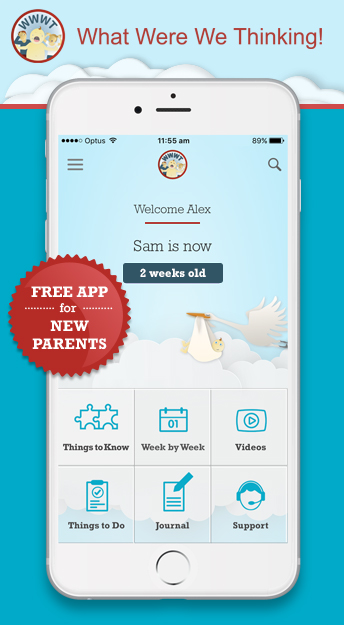Health messages for pregnant women and new parents
By Heather Rowe

“Maybe I’ve got postnatal depression?”
Health messages for pregnant women and new parents are everywhere. It is good that fathers’ needs are beginning to be taken more seriously and that there is now more emphasis on parents’ mental health. For example, you may have seen mental health promotion campaigns that encourage people to tell someone if they are feeling as though things are getting on top of them of if they are worried, unhappy, lonely, overwhelmed, edgy or unable to experience any moments of enjoyment.
Telling someone about emotional reactions like this is an important way to help people to recognise the symptoms of depression and anxiety and to seek professional help. However there may be a downside.
Public health messages are usually meant for everyone, regardless of their individual circumstances, and although not the intention, the message can cause women and men to worry about their mental health and even believe that they might ‘catch’ depression like an infectious disease. The same is true for postnatal depression. The idea that you might have a mental health problem can become yet another thing to worry about.
Most parents of young babies can recognise at least some of these emotional reactions and understand them as a normal response to the difficult demands of life with a baby. Most often, these ordinary adjustment reactions will go away over time and with practical and emotional support. However the mental health promotion message can lead women and their families to label these feelings as mental illness. This might be helpful for the few who could really benefit from professional help, but it can be troubling for others who don’t believe that an illness label describes their experiences.
These mental health promotion messages also understand the problem as being within the individual woman, rather than reflecting her life stage and circumstances.
Mothering an infant always takes place within a personal life and social setting. Naming and expressing your feelings and seeking help, if necessary, is certainly useful however finding simple solutions to everyday problems such as settling a baby who cries a lot or a partner who is critical should not be overlooked. Solving these common, everyday problems is a sure way improve confidence and reduce distress.
Heather is Senior Research Fellow with expertise in women's health research and health promotion practice. She translates expert knowledge into mental health promotion programs for women and their families. She has a special research interest in using technologies to reach diverse groups of women and their families during the childbearing year and at other phases of life.
Posted in: A new reality Baby 0-4 weeks Late pregnancy Parenting Experts








